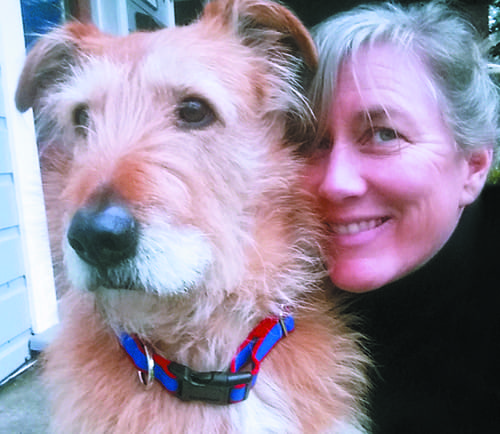I confess: I am absolutely fascinated with animal behavior and “training.” I think about it all the time – so much so, that I even think about most human-human interactions in terms of basic principles of animal behavior and learning theory. I’m not alone; many trainers I know happily describe themselves as “behavior geeks.”
However, I have observed that many dog owners are not all that interested in schedules of reinforcement or counter-conditioning; they don’t want to have to review their Psychology 101 textbooks or practice for hours to improve the timing of their marking and reinforcing skills. They don’t want to be dog trainers; they just want their dogs to behave better!
But give me two minutes, and I will try to convince any owner that she already is a dog trainer! “Look at the behavior you have already taught your dog!” (There must be something; almost everyone has taught their dog to at least sit on cue.) I’ll say, “Would you feel like a more accomplished trainer if you had taught a duck to sit on cue? Or your cat? And if so, what’s the difference? Why do we get upset or frustrated if we can’t easily teach our dog to do something, but we’d consider it a major accomplishment if we taught our cat or a duck to do the same thing?”
I have a theory: Because we have folded dogs into our lives so thoroughly, because they share our food and beds, we have come to expect much more human behavior from them. We are often dismayed when they display normal canine behavior such as barking, jumping, foraging for food, wanting to run (not walk) everywhere, etc. Maybe we didn’t mind (or even notice) all that doggy behavior 30 years ago, when dogs lived mostly outdoors (or in the garage) and perhaps even roamed freely during the day. But when they act like dogs in our homes – gosh!
Remember, as familiar as your dog is to you, as much as you love him, he’s not a human; in fact, he’s a different species of animal, not unlike a cat or duck. Make sure your expectations of his behavior are realistic – that you allow your dog to behave like a dog (at least sometimes) – and give yourself some credit for teaching him the things he has learned so far. You’re a trainer! Don’t resist learning a bit more, so you can be an even better trainer and enjoy your dog more.
CORRECTION
We regret that two titles were inadvertently left off our list of recommended DVDs in “How to Reform a Reactionary” in the January 2020 issue. They are:
Brown, Ali. “Reactive Dog Classes: On the Road to Reality.” Tanacacia Press, 2012.
Brown, Ali. “Scaredy Dog! Understanding and Rehabilitating Your Reactive Dog Seminar DVD.” Great Companions, 2005.






